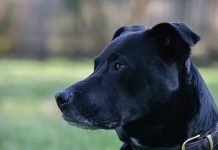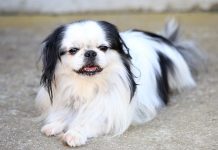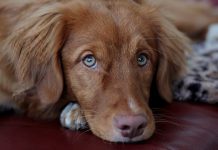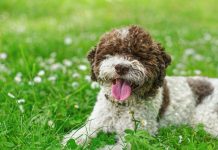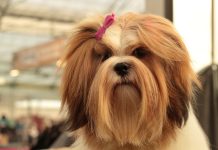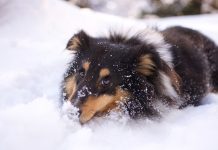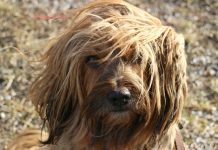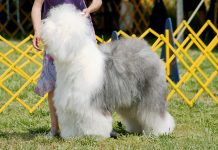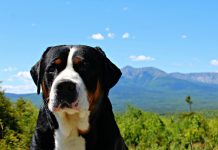History and Origins of the Affenpinscher Breed
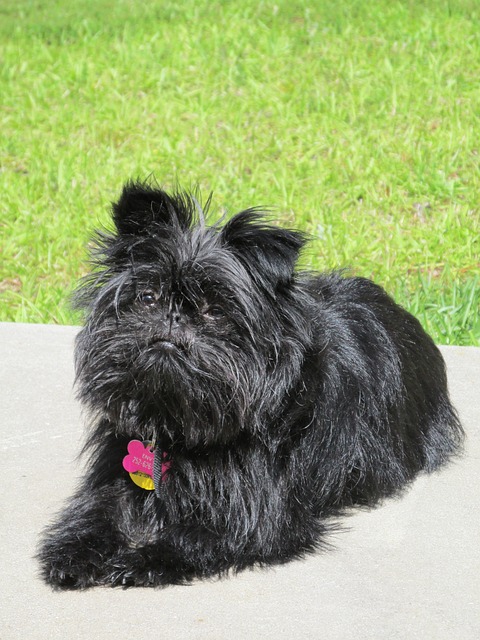
The Affenpinscher, also known as the “monkey dog” or “ape terrier,” is believed to have originated in Germany during the 17th century. Its name comes from the German word “affen,” meaning monkey or ape, due to its expressive face and lively personality.
Originally, Affenpinschers were bred as ratters in kitchens, stables, and shops. Their job was to catch rats and other vermin, making them valuable companions for controlling pests. Over time, they also became popular as companions for households due to their entertaining nature and loyal disposition.
The breed’s early ancestors likely included small terriers and poodles, resulting in the unique appearance and characteristics seen in modern Affenpinschers.
Physical Characteristics and Appearance of Affenpinschers
The Affenpinscher is a small, sturdy dog with a distinctive appearance and lively demeanor. Here are key physical characteristics of the breed:
- Size: Affenpinschers are compact dogs, typically standing between 9 to 11 inches (23 to 28 cm) tall at the shoulder.
- Weight: They usually weigh between 7 to 10 pounds (3 to 4.5 kg), with males being slightly larger than females.
- Coat: Affenpinschers have a dense, wiry coat that is rough to the touch. Their coat comes in various colors, including black, gray, silver, black and tan, or red. Regular grooming is necessary to maintain the coat’s texture and appearance.
- Face and Expression: The most distinctive feature of the Affenpinscher is its expressive face, characterized by a prominent jaw, dark, round eyes that give a lively and alert expression, and a short, pushed-in muzzle.
- Ears: Affenpinschers have small, erect ears that stand straight up and contribute to their alert appearance.
- Tail: The tail of an Affenpinscher is typically docked to a short length, giving it a stubby appearance. In countries where tail docking is prohibited, they have a natural tail that is carried high and curved over the back.
- Overall Build: Despite their small size, Affenpinschers are muscular and sturdy dogs. They have a square proportion, with a slightly longer body compared to their height.
- Temperament: Affenpinschers are known for their bold and confident temperament. They are curious, playful, and energetic, making them entertaining companions. Despite their small size, they are fearless and can be independent-minded.
- Exercise Needs: Affenpinschers have moderate exercise needs. Daily walks and play sessions are sufficient to keep them happy and healthy.
- Lifespan: The average lifespan of an Affenpinscher is around 12 to 15 years, although some can live longer with proper care and nutrition.
The Affenpinscher’s unique appearance and spirited personality make them a favorite among small dog enthusiasts. They are adaptable to various living situations, including apartments, as long as they receive proper exercise and mental stimulation. With their history as pest controllers and their affectionate nature, Affenpinschers continue to delight their owners and make wonderful companions.
Affenpinscher Temperament and Personality Traits
- Bold and Confident: Despite their small size, Affenpinschers are bold and fearless dogs. They have a confident demeanor and may exhibit a larger-than-life personality.
- Curious and Playful: Affenpinschers are curious by nature and love to explore their surroundings. They have a playful spirit and enjoy engaging in games and activities with their families.
- Alert and Watchful: Affenpinschers are naturally alert and attentive. They make excellent watchdogs and will alert their owners to any potential intruders or unusual activity.
- Affectionate and Loyal: Affenpinschers form strong bonds with their families and are affectionate companions. They enjoy spending time with their loved ones and thrive on attention and affection.
- Independent Thinkers: Affenpinschers are intelligent dogs with a bit of a stubborn streak. They like to do things on their terms and may require patient and consistent training.
- Good with Children: When properly socialized, Affenpinschers can be good companions for older children. They are sturdy enough to handle gentle play but may not tolerate rough handling.
- Reserved with Strangers: Affenpinschers can be wary of strangers and may initially be aloof or cautious. Proper socialization from a young age can help them feel more comfortable around new people.
- Low Maintenance: Despite their energetic nature, Affenpinschers are relatively low-maintenance in terms of exercise. They enjoy short walks and interactive play sessions but are also content to lounge around the house.
Training and Socialization Needs for Affenpinschers
- Early Socialization: Start socializing your Affenpinscher puppy early to expose them to various people, animals, and environments. This helps prevent shyness or fearfulness as they mature.
- Consistent Training: Affenpinschers benefit from positive reinforcement training methods. Use treats, praise, and rewards to motivate them and reinforce desired behaviors.
- Basic Obedience Training: Teach basic commands such as sit, stay, come, and heel. Keep training sessions short and engaging to hold their attention.
- Patience and Persistence: Affenpinschers can be independent and may require patience during training. Stay consistent and persistent, and avoid harsh or punitive methods.
- Watch for Small Dog Syndrome: Affenpinschers are small but can develop “small dog syndrome” if not properly trained. Establish clear rules and boundaries to prevent undesirable behaviors such as excessive barking or possessiveness.
- Social Interaction: Expose your Affenpinscher to different people, dogs, and situations regularly to build confidence and prevent behavioral issues.
- Exercise and Mental Stimulation: While not high-energy dogs, Affenpinschers still need regular exercise and mental stimulation to prevent boredom and ensure overall well-being. Interactive toys, puzzle games, and short walks are ideal.
- Positive Reinforcement: Affenpinschers respond best to positive reinforcement. Reward good behavior and ignore or redirect undesirable behavior to encourage positive habits.
By providing proper training, socialization, and attention, Affenpinschers can thrive as loving and well-behaved companions. Their unique blend of intelligence, playfulness, and affection makes them a joy to be around and a cherished member of the family.
Health Considerations and Common Issues in Affenpinschers
- Patellar Luxation: This is a condition where the kneecap (patella) dislocates or moves out of its normal position. Affenpinschers can be prone to patellar luxation, which may cause lameness or difficulty walking.
- Hip Dysplasia: Affenpinschers, like many small breeds, can develop hip dysplasia, a genetic condition where the hip joint doesn’t develop properly, leading to arthritis and mobility issues.
- Collapsed Trachea: Affenpinschers may be at risk of a collapsed trachea, especially if they pull on their leash during walks. This can cause coughing, wheezing, or respiratory distress.
- Dental Issues: Small breeds like Affenpinschers are prone to dental problems such as periodontal disease, tooth decay, and dental tartar buildup. Regular dental care, including brushing their teeth, is essential.
- Heart Conditions: Some Affenpinschers may be predisposed to heart conditions such as mitral valve disease or patent ductus arteriosus (PDA). Regular veterinary check-ups can help monitor heart health.
- Eye Problems: Affenpinschers may develop certain eye issues, including cataracts, progressive retinal atrophy (PRA), or cherry eye. Regular eye exams are recommended.
- Legg-Calve-Perthes Disease: This is a condition where the blood supply to the femoral head (the “ball” part of the hip joint) is disrupted, leading to degeneration of the hip joint and lameness.
- Hypothyroidism: Affenpinschers can be prone to hypothyroidism, a condition where the thyroid gland doesn’t produce enough hormones. Symptoms may include weight gain, lethargy, and skin problems.
Living with an Affenpinscher: Suitable Environments and Lifestyle Considerations
- Indoor Living: Affenpinschers are well-suited for indoor living and thrive in apartments or smaller homes. They enjoy being close to their families and prefer moderate temperatures.
- Regular Exercise: While not overly energetic, Affenpinschers still benefit from daily exercise to keep them healthy and mentally stimulated. Short walks, playtime, and interactive toys are ideal.
- Grooming Needs: Affenpinschers have a wiry coat that requires regular grooming to prevent matting and tangling. Brush their coat several times a week and schedule professional grooming as needed.
- Dental Care: Due to their susceptibility to dental issues, establish a regular dental care routine for your Affenpinscher, including brushing their teeth and providing dental chews or treats.
- Supervision Outdoors: When outdoors, supervise your Affenpinscher to prevent them from getting into potentially dangerous situations or encountering larger animals that may pose a threat.
- Social Interaction: Affenpinschers enjoy social interaction with their families and may become attached to their primary caregivers. Ensure they receive sufficient attention and companionship.
- Training and Mental Stimulation: Engage your Affenpinscher in training sessions and provide mental stimulation through puzzle toys and interactive games to keep them mentally sharp.
- Regular Veterinary Care: Schedule regular veterinary check-ups and vaccinations to monitor your Affenpinscher’s health and detect any potential issues early on.
By understanding the health considerations and lifestyle needs of Affenpinschers, you can provide a safe, enriching, and loving environment for your furry companion. With proper care and attention, Affenpinschers can live happy, healthy lives as cherished members of your family.
Affenpinscher Variations and Breeding Practices
Affenpinschers are a distinct breed with relatively uniform characteristics, but like any breed, variations can occur based on breeding practices and genetic influences. Here’s a look at Affenpinscher variations and common breeding practices associated with this unique breed:
Variations in Affenpinschers:
- Size Variations: Affenpinschers generally fall within a specific size range, typically weighing between 7 to 10 pounds and standing around 9 to 11 inches tall at the shoulder. However, variations in size can occur within the breed.
- Coat Color: Affenpinschers come in various coat colors, including black, gray, silver, black and tan, or red. While black is the most common color, other shades and combinations can also be found.
- Facial Features: Affenpinschers are known for their distinctive facial features, including a prominent jaw, dark, round eyes, and a short, pushed-in muzzle. Some variations in facial structure may occur based on individual genetics.
- Temperament Traits: While Affenpinschers typically share common temperament traits such as boldness, playfulness, and affection, variations in temperament can occur based on breeding and individual personality.
Breeding Practices for Affenpinschers:
- Health Testing: Responsible breeders prioritize the health of their breeding stock by conducting health screenings for genetic conditions common in Affenpinschers, such as patellar luxation, hip dysplasia, and heart issues. This helps reduce the risk of passing on hereditary health problems to offspring.
- Pedigree Selection: Ethical breeders maintain detailed pedigree records and carefully select breeding pairs based on health, temperament, and adherence to breed standards. They aim to produce puppies with predictable traits and minimize the risk of genetic disorders.
- Focus on Breed Standards: Affenpinscher breeders adhere to breed standards set by kennel clubs and breed organizations, which outline specific physical and behavioral traits that define the breed. Breeding practices focus on preserving and enhancing these standards.
- Avoiding Inbreeding: Responsible breeders avoid excessive inbreeding and aim to maintain genetic diversity within the Affenpinscher gene pool. This helps reduce the risk of inherited health issues and preserves the overall health and vitality of the breed.
- Socialization and Environmental Exposure: Reputable breeders prioritize early socialization and exposure to various stimuli for puppies to help develop well-rounded and confident personalities.
- Ethical Considerations: Ethical breeders prioritize the welfare of their dogs and are committed to producing healthy, well-adjusted puppies. They provide proper care, nutrition, and enrichment to their breeding dogs and puppies.
- Continued Education and Improvement: Responsible breeders stay informed about advancements in canine health, genetics, and breeding practices. They participate in breed-specific events, seminars, and organizations to continually improve their breeding programs.
While Affenpinschers may not exhibit as much variation in appearance and temperament as some other breeds, responsible breeding practices play a crucial role in maintaining breed health, temperament, and overall quality. By selecting reputable breeders who prioritize health, temperament, and adherence to breed standards, prospective owners can ensure they are acquiring a well-bred Affenpinscher with predictable traits and a good chance for a healthy, happy life.
50 Best Names with Meanings for Affenpinschers

Naming your Affenpinscher is a fun and meaningful part of welcoming them into your family. Here’s a list of 50 great names along with their meanings that could suit your Affenpinscher perfectly:
Male Affenpinscher Names:
- Oscar – Means “divine spear.”
- Fritz – Means “peaceful ruler.”
- Gizmo – Refers to a gadget or small device.
- Otto – Means “wealth” or “prosperity.”
- Loki – Named after the mischievous Norse god.
- Milo – Means “soldier” or “merciful.”
- Finn – Means “fair” or “white.”
- Bruno – Means “brown” in German.
- Archie – Means “genuine” or “bold.”
- Jasper – Means “treasurer” or “bringer of treasure.”
Female Affenpinscher Names:
- Luna – Means “moon” in Latin.
- Zoey – Means “life” or “vitality.”
- Coco – Refers to the cocoa bean or chocolate.
- Bella – Means “beautiful” in Italian.
- Mia – Means “mine” or “darling.”
- Stella – Means “star” in Latin.
- Gigi – Often used as a nickname, meaning “earth worker.”
- Lola – Means “sorrows” or “lady of sorrows.”
- Pixie – Refers to a playful and mischievous sprite.
- Roxy – Means “dawn” or “bright.”
Unique Affenpinscher Names:
- Gizmo – Inspired by the movie character from “Gremlins.”
- Ziggy – A fun and quirky name for an energetic dog.
- Tucker – Means “fabric pleater” or “softener of cloth.”
- Winston – Means “joy stone” or “friendly.”
- Dexter – Means “dyer” or “one who dyes.”
- Nico – Means “victory” or “people’s victory.”
- Pippin – Means “lover of horses.”
- Ollie – A playful and friendly name for a cheerful dog.
- Scout – Inspired by the adventurous character from “To Kill a Mockingbird.”
- Winnie – Means “fair one” or “blessed.”
Strong Affenpinscher Names:
- Maximus – Means “greatest” or “largest.”
- Titan – Represents strength and power.
- Rocky – Inspired by the resilient and tough character.
- Hercules – Named after the legendary hero known for his strength.
- Axel – Means “father of peace” or “peaceful.”
- Leo – Means “lion,” symbolizing strength and courage.
- Bolt – Refers to lightning or a sudden movement.
- Thor – Named after the Norse god of thunder.
- Rex – Means “king” or “ruler.”
- Bruiser – A tough and rugged name for a small but mighty dog.
Elegant Affenpinscher Names:
- Sophie – Means “wisdom” or “knowledge.”
- Aurora – Means “dawn” or “morning light.”
- Daisy – Represents innocence and purity.
- Chloe – Means “blooming” or “fertility.”
- Grace – Represents elegance and beauty.
- Ivy – Named after the climbing plant, symbolizing strength.
- Harper – Means “harp player” or “minstrel.”
- Elsa – Means “pledged to God” or “God is my oath.”
- Willow – Represents flexibility and resilience.
- Aria – Means “air” or “melody.”
Choose a name that resonates with you and reflects your Affenpinscher’s personality, appearance, or characteristics. Whether you prefer traditional names, unique and playful names, or strong and elegant names, these options should inspire you to find the perfect name for your beloved Affenpinscher!
In conclusion, this comprehensive guide has provided a detailed overview of Affenpinscher dogs, highlighting their unique breed characteristics and essential care considerations. Throughout our exploration, we’ve delved into the history, distinctive traits, and important aspects of owning an Affenpinscher.
Affenpinschers are known for their playful and lively personality, characterized by their terrier-like qualities and charming demeanor. They are intelligent, confident dogs that form strong bonds with their families and thrive on companionship.
As you embark on your journey with an Affenpinscher, it’s important to provide them with proper training, socialization, and mental stimulation to channel their energy and intelligence. Regular grooming and dental care are also essential to maintain their distinctive coat and overall health.
With patience and dedication, Affenpinschers can make delightful companions for households of all sizes. Remember to consult with veterinarians and experienced dog trainers for specific guidance tailored to your Affenpinscher’s individual needs. By understanding and meeting their needs, you’ll create lasting memories and enjoy a fulfilling companionship with this spirited and affectionate breed.






